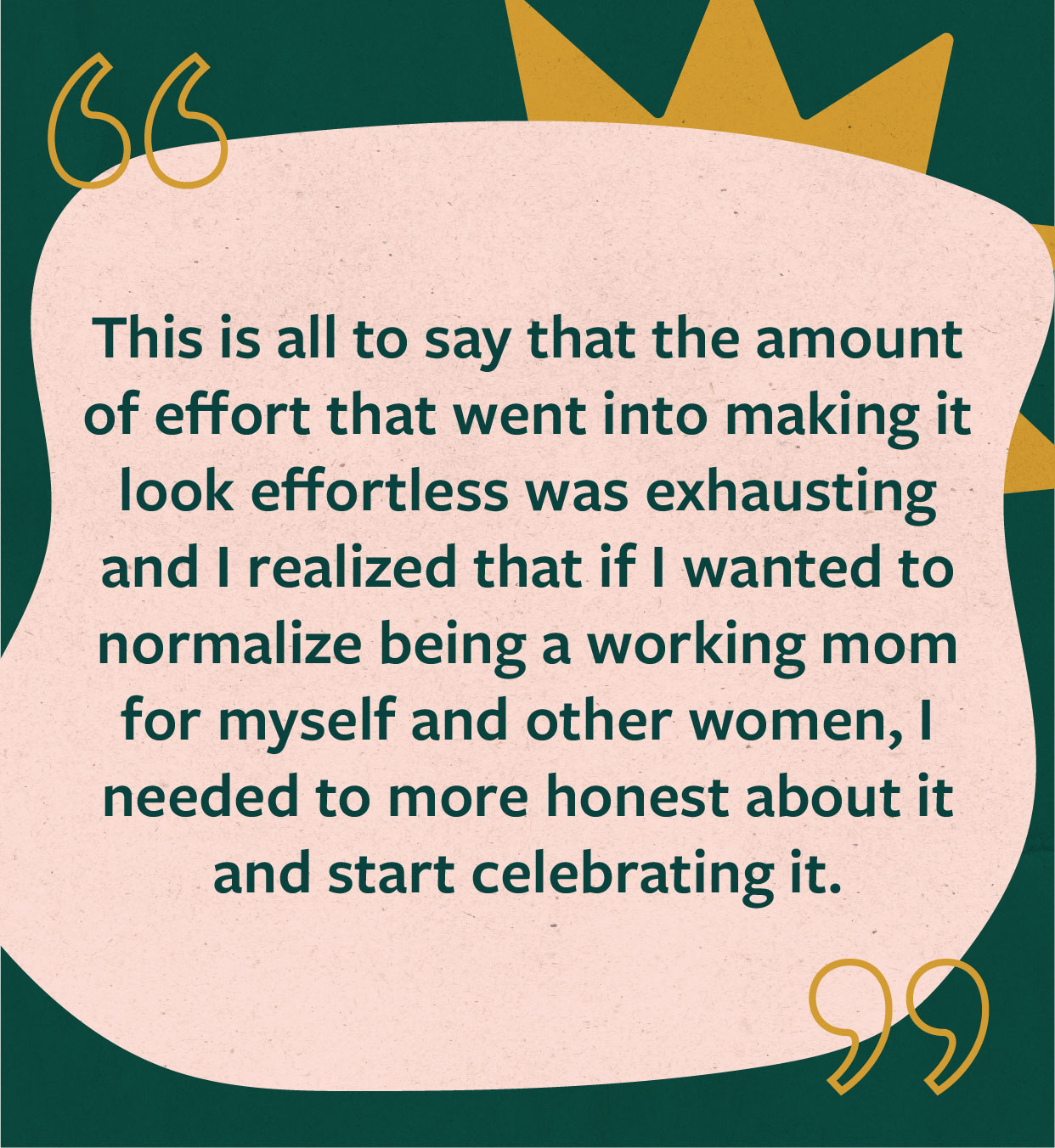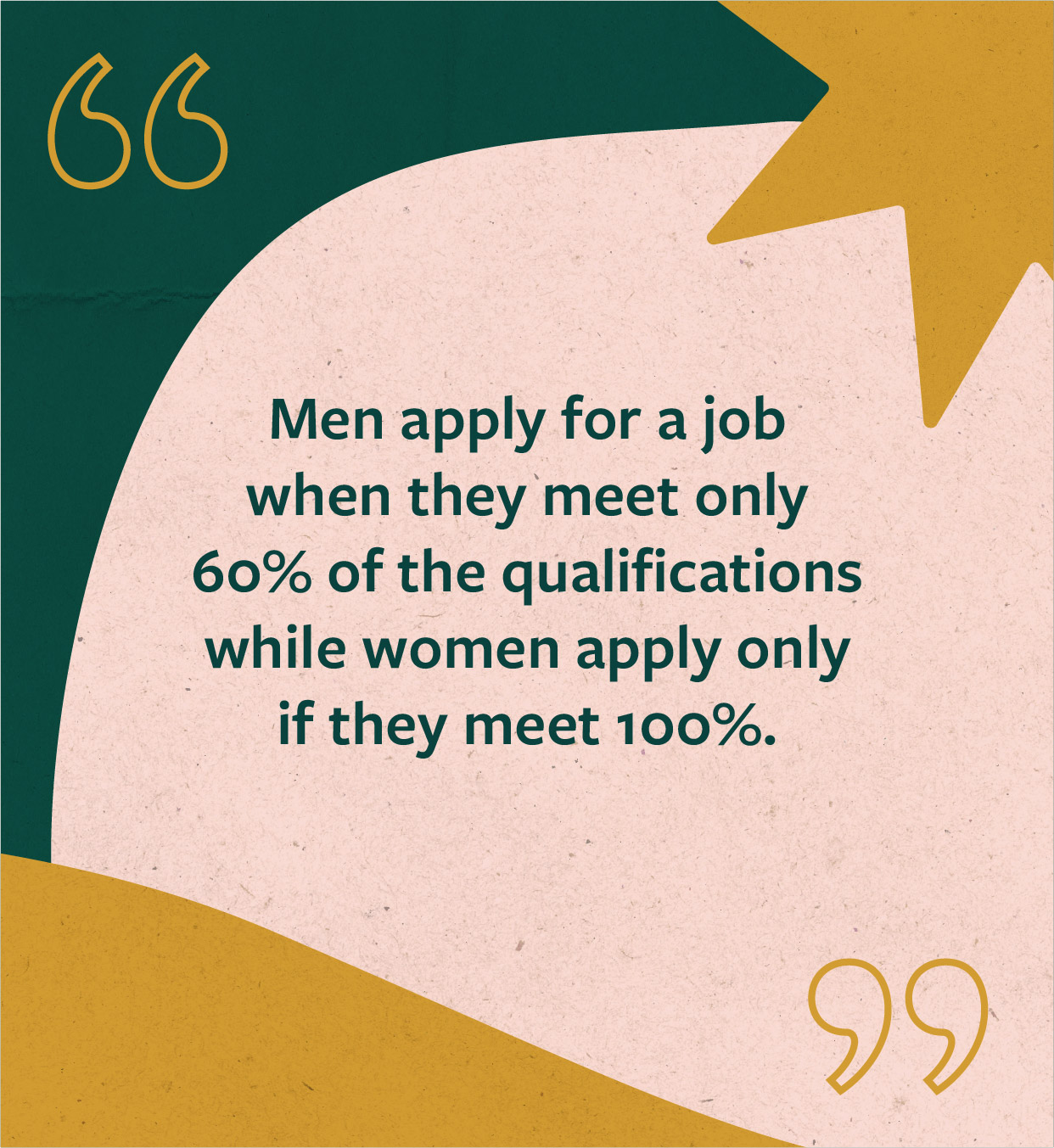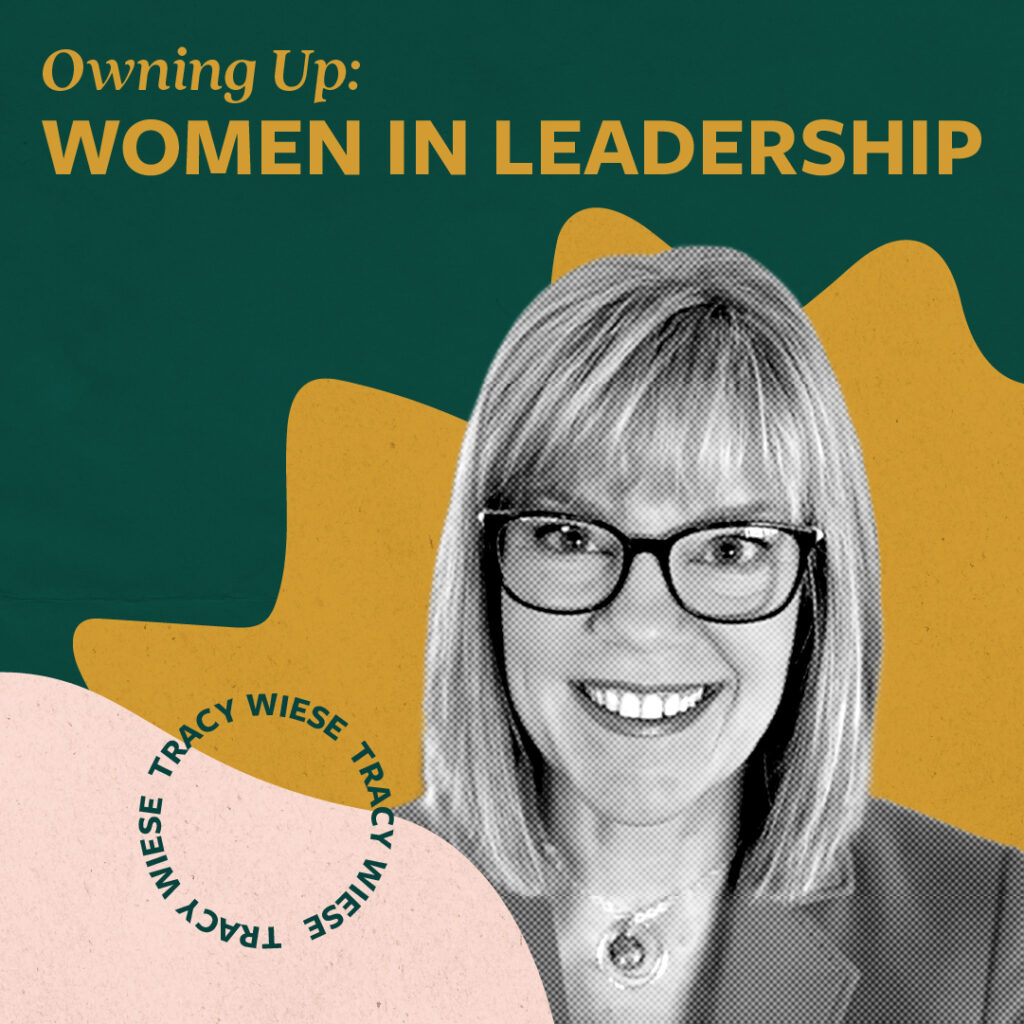Owning Up: Women in Leadership Series
Women held 31.7% of top executive positions across industries in 2021. At Stoltz, we know women make great leaders—and we envision a world where there are an equal number of women in leadership as men. We asked several women we admire who hold leadership positions, or are experts in their field, to share their experiences with us and what leadership means for them. Here is one of their stories.

Women are redefining what it means to have work-life balance
— By Kat Crozier
As I was wrapping up a call the other day, a coworker who just returned from maternity leave asked if I could stay on the line for a few minutes. Once everyone else had hopped off, her voice immediately got shaky. “Kat, I don’t know how to handle all of this. I feel like I’m drowning. I don’t understand how you do this with three little kids. It seems impossible with one.” My initial reaction was shock…had I actually made it seem as though I could handle this? Did she not know how many times I strategically muted myself on a call to yell at a child for sticking their stuffed animal down the toilet or getting the chocolate syrup out of the refrigerator and squeezing it all over themselves or had to run outside to get a kid back inside because they were halfway down the driveway completely naked?! If I had somehow made this woman think I had my head above water and was calmly and gracefully getting through every trip/day/meeting with my three well-behaved kids cheering me on, being super grateful and respectful in the background, then I. WAS. NAILING IT.

Except then I realized how wrong this approach was. I realized I was doing such a huge disservice to women and working moms. Pretending this was easy gave other women completely impossible expectations of what work-life means. I was so focused on making it look easy, hiding what was really going on, pretending I had some magical formula figured out that made me efficient and effective at work while also being present and caring for my children. All at the same time. No sacrifices necessary.
As soon as she said those words to me, I realized I needed to be much more open about how challenging yet possible, stressful yet rewarding, sobering yet comical, working with kids can be. When COVID hit, many of us had the privilege of working from home, either full-time or in some sort of hybrid situation. At first, everyone was so understanding of life being in the background, in fact, it was almost celebrated. We got to have a glimpse into our coworker’s lives that we wouldn’t otherwise have had. I’d say that lasted a few weeks. Very quickly the expectation was “you’ve had a few weeks to get better at this, I don’t want to see or hear your kids anymore.”

That’s when many of us became magicians. We figured out ways to keep our heads and eyes on the camera while somehow opening apple sauces and capri suns (seriously, eff those straws!). Our little ones got very used to being held back by the strategically placed arm so they couldn’t get within camera view. Cameras briefly went off because of “poor Wi-Fi connections” but it was really just to save the life of the little one that somehow crawled up onto the counter and was pretty sure they could jump off as long as they landed on the dog to break their fall.
This is all to say that the amount of effort that went into making it look effortless was exhausting and I realized that if I wanted to normalize being a working mom for myself and other women, I needed to be more honest about it and start celebrating it. That’s the only way women can continue to blaze trails, find balance, and help future generations of women do better.
Women can elevate their careers and grow their families
Working women must navigate diverse career paths while challenging traditional gender roles. We’re balancing professional ambitions with personal aspirations while contributing to the ongoing transformation of workplace dynamics. It isn’t easy! But it’s so necessary.
When I was pregnant with my third child, a male coworker told me he’d understand if I didn’t want to go for a promotion because I had other things going on in my life. I was looked at as being ready to slow down in my career — even though I had given no indication that was true. In fact, it was the complete opposite — I went back to school and got my MBA.
There’s a double standard. If a male coworker announces he’s having a third child, no one asks if he’s going to keep working. Of course, he’ll want to go for that promotion. He has a family to support! And to be fair to my male coworker, as soon as I made it clear that I was still very much going to focus on my career, was very supportive and even became an advocate for me when a promotion became available. He just needed a little reminder that I was still me … even if I was having another kid.

This almost begs the question: can women really have both career growth and flexibility? The answer is obviously yes. Companies are starting to realize that regardless of your gender, you need work-life “balance.” I think we’ve made huge strides to find more harmony, but we’re not there yet. Career growth and flexibility is not an either-or, but it does seem to take longer for women to achieve. I have no doubt I’ll get to where I want to be in my professional and personal life, I just think it’s going to take me longer than I expected because of the gender-bias detours I’ve had, and will continue to have, along the way.
A 2019 McKinsey and Lean In survey polled employees about their first promotion to management. The results showed that for every 100 men getting their first promotion, just 72 women are promoted. Men are hired for their potential and women are hired for their experience. Once I got into a senior leadership role my male colleagues would say things to me like, “Oh, I didn’t realize you have a degree in finance or an MBA. I had no idea you’ve been in marketing for 20 years.” Or my personal favorite “I always thought of you as more creative, it’s great to see you have a strategic side!” (cue the huge eye roll). They had already downplayed me before I entered the room, so to speak. It’s hard to know for sure that if I were a male, I would be further in my career, but my hunch is my credentials would be seen as awesome potential.

Women have to recognize their value
I’m learning to not undervalue myself. I think women in general tend to downplay their skills and experience. Being unable to recognize my value held me back in a lot of ways, from going for the senior positions I wanted — to taking positions that I was overqualified for. And it’s not just me! Men apply for a job when they meet only 60% of the qualifications while women apply only if they meet 100%. I worked in recruiting briefly and quickly learned men would naturally advocate for themselves and had this “you’ll be lucky if you get me” mindset. Women, on the other hand, were all too often happy to take the first offer and felt lucky to get the job. I don’t really like either of these dynamics, but it reminds me that women in the workforce need must start realizing their worth.
Women who support other women are helping us to all rise together
One way to get comfortable recognizing your worth? Start advocating for other women and surround yourself with people that do the same. My group of girlfriends are all in different life circumstances — working moms, stay-at-home moms, single professional women — we’re a total mix. I admire every one of them for a million reasons, but one in particular: they support other women. First and foremost, we support each other fiercely and somewhat obsessively (a healthy obsession, I promise). We also support the other women in our lives whether it be colleagues, friends, family, or even strangers. The ability these women have to use their unique position in life to advocate for other women is nothing short of inspiring. They lead by example, mentor selflessly, and provide honest feedback and advice to help other women propel themselves forward. They don’t compete with one another and truly believe that when one of us wins, we all win. Being around this, and being part of it, has absolutely helped me lean into my own worth, believe in it, and hopefully pass that along to others.

Changing how women are perceived in the workplace is going to take time. Every female generation has had some hurdle to overcome — being in the room, maternity leave, pay gaps, etc. — there’s always been a fight. Work-life balance is our fight now. Women can raise families — and the bar in their careers. When I do decide I’m done with my career, I want to look back and know that the contributions I’ve made have helped pave the way for more women in the workforce to tackle their professional and personal lives with some amount of balance and a lot more support. It won’t be easy, but I hope to contribute to making working as women more doable and more accepted. By normalizing, celebrating, supporting, talking about, and advocating for what it means to be a working woman and mother, I think I’m on the right track.
I’ll leave you with a few things I’m doing now to normalize work-life balance:
- Set boundaries on when calls can occur (respect the calendar). If a call is not on the calendar, then my kids might be in the background. If it is, I will respect that time and make sure I am 100% focused on the call.
- Communicate clear expectations for coworkers on when they can expect your work to be done. Most can agree that 9-5 doesn’t exist anymore. Communication is key, and it also lightens up the stressful “friendly reminder” emails.
- Review your calendar and be ready for what’s to come. Communicate that with your family so they know what to expect. When is it their time vs. your time.
- Be honest. If something is happening during a call, be honest with your team and say you need to take a quick moment. Things happen, they understand.
- Give the same grace to others.



